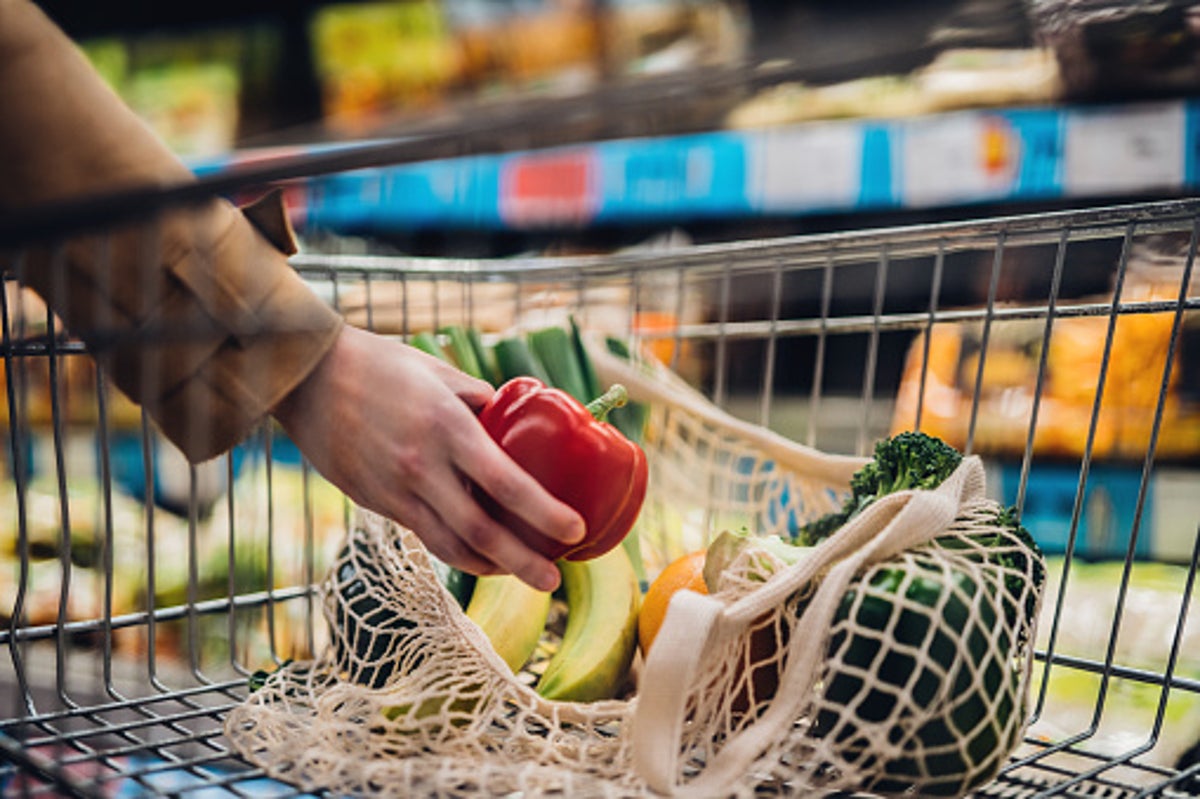
The cost of living crisis is forcing consumers to make less sustainable choices as prices soar, according to new research.
Six in 10 (59 per cent) shoppers say they have been forced to choose less sustainable but cheaper options as prices increase – despite wanting to make more eco-friendly choices.
This rises to 70 per cent among younger adults who are feeling the financial strain more acutely, a survey commissioned by insurer Zurich’s Youth Against Carbon initiative found.
And nearly three-quarters (74 per cent) want the government to take steps to make sustainable behaviour and products more cost-effective.
Sustainable appliances like energy-efficient lightbulbs are the most likely to be left on shelves with almost half (45 per cent) of shoppers saying they are now having to swap them for cheaper, less environmentally friendly options.
Locally sourced and organic fruits and vegetables (41 per cent) are second on the list of green items on the chopping block, followed by eco-friendly cleaning products (39 per cent).
For young people, the biggest impact is being felt on clothing purchases, with 40 per cent saying they would choose more planet-friendly fashion if it wasn’t for the cost of living crisis.
John Keppel, chief sustainability officer at Zurich UK, said: “With the impact of the current economic landscape on the general public being so stark and immediate, it’s totally understandable that people prioritise making ends meet over living greener lives.
“But as a nation, we also need to keep sustainability on the agenda. It’s a tough challenge, but government and industry need to work together to ensure that short-term crises can be navigated without falling behind on our long-term climate goals.”
This ‘cost over climate’ position comes despite a summer that dramatically impacted the nation’s awareness of the climate emergency. Most young people (68 per cent) were made more aware of the impact of climate change on the UK following this year’s record hot summer, resulting in higher levels of eco-anxiety for 62 per cent of the under 35s.
Amy Meek, co-founder of Kids Against Plastic and ambassador for Youth Against Carbon, added: “Young people are not only currently dealing with the extra challenge of the cost-of-living crisis but also the greatest sense of anxiety about the future of our planet.
“And, in reality, we can’t deal with the climate and energy crises separately – our climate emergency and the energy crisis share many solutions in common, and are both of equal importance.”
Source link
